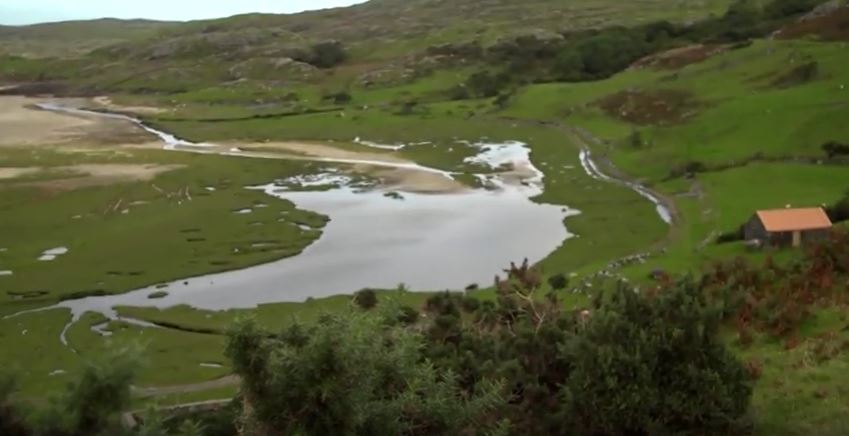Tonight’s episode of Ear to the Ground will feature a remote valley in Co. Mayo, issues around hedgecutting periods and what it takes to organise a hunt.
From the start of this year Ear to the Ground has switched to Tuesday night on RTE One at 8.30pm.
Travelling to Co. Mayo, Ella McSweeney visits The Lost Valley, a place so remote that after the Great Famine the land remained untouched by human hands.
Located near the town of Louisburgh, the valley was so dangerous to enter, that Gerry Bourke, a farmer and the landowner of the abandoned terrain, created a pathway into it.
This pathway now leads through the valleys deserted houses, potato ridges and farmland of Bourke’s ancestors.
Meanwhile, Darragh McCullough will meet up Birdwatch Ireland, who believe that allowing hedgecutting during the month of August would further threaten already endangered species of birds like the Yellowhammer.
As it stands, farmers and contractors can only cut hedges from September to February to protect nesting birds and other wildlife.
But the Government has recently proposed an amendment to the Wildlife Act to allow hedgecutting during the month of August.
Darragh will meet with Birdwatch Ireland to hear its arguments against the proposed amendments to the Wildlife Act.
10 years ago Pat Dillon took over as Joint Master of the Meath Hunt, a position his father, Ben, had previously held for many years.
The majority of us are familiar with the image of a group of well turned out riders and hounds being led by men in red coats in search of a fox.
Helen spent the day with Dillon and the Hunt to find out what exactly it takes to organise such an event.
She met with the different people behind the scenes, such as the farmers who allow the hunt on their land as well as the men who look after the hounds.
